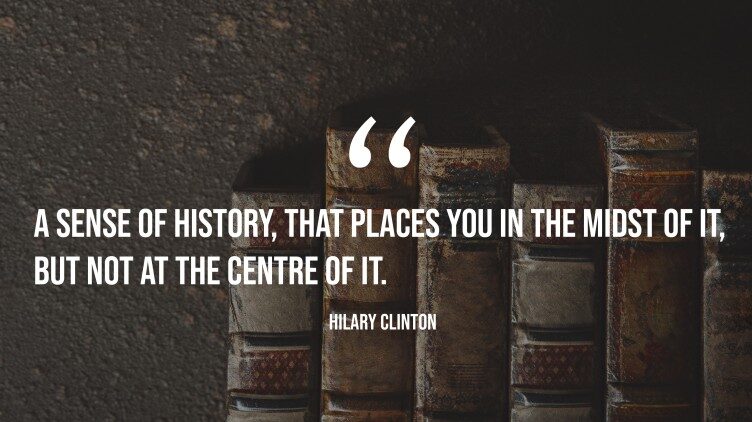Of the things that I have read and listened to this week, several things stood out, but this quote from Hilary Clinton tops them all. Asked by Rory Stewart ‘what three things makes a great president’ on the Leading podcast, this was her second point. And it touches on something that I think is poorly understood by leaders about seeing their role within a much wider story. Often, we are leading organisations that were founded by others, who established it with a vision and values that we became custodians of and undertake to steward for a season. Even if we are the founders, we have a responsibility to the future. If we have any ambition for legacy, if the organisation is going to outlast us, then it is incumbent on us to build in a way that doesn’t make it all about us.
Clinton’s comments confront in us the need to think about where we have come from and where we are going. Recognising the relentless need to refresh and renew if we are to be of persistent relevance, without becoming iconoclasts who undervalue the foundations laid by others.
It also speaks to another challenge which leaders struggle to keep in balance – the belief that their contribution is of vital importance and the misapprehension that everything depends on them. I have spent plenty of time with leaders in both commercial and civil society organisations who have found themselves tugged by these two forces, with adverse and undesirable consequences for both.
Some leaders diminish their own efforts, assign all credit to others, elevating the contribution of team members to such a point that it devalues their own impact. Don’t get me wrong, the world needs leaders who serve the collective cause and understand that their principal responsibility is to get the best out of others, but if they lose sight of the role they uniquely have to play in establishing direction, setting culture, articulating expectations and managing performance, it erodes their confidence, undermines their influence and destabilises their teams.
Then there are those who willingly or unwittingly develop the misconception that absolutely everything revolves around them. Setting standards high and searching for the best outcomes, they fall into the trap of thinking that success is only really guaranteed by their involvement. They probably don’t vocalise it, but the internal recording is on loop: “If you want a job done right, do it yourself”.
Of course it is vital for organisational leaders to feel that their contribution is making a difference. It motivates them to ‘show up’ for their colleagues every day, in every area of responsibility, to be the best of themselves in order to get the best out of others. But the danger of overinflating your view of your own contribution is that it will corrode your confidence in team, undermine your duty to develop others and ultimately lead to exhaustion or minimise the extent of your influence.
Thinking rightly about our role as leaders, and our place in the history of the organisations that we lead is salient, if we are to cherish the heritage bestowed on us by others, and to leave an inheritance that will persist when our contribution has come to an end.

